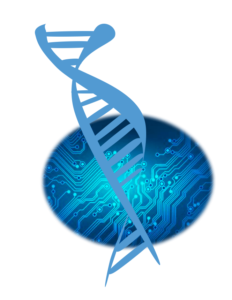The Dark Side of Telemedicine & Healthcare Technology
 Every human condition can be improved with the correct instruments, right? Telemedicine, artificial intelligence (AI) and machine learning (ML) are such instruments, and they are becoming more accessible, accurate and precise with each passing year. We are increasingly able to acquire, process and interpret big data more quickly. The power of these tools will no doubt allow us to decode the greatest mysteries of our human experience: our human body and mind.
Every human condition can be improved with the correct instruments, right? Telemedicine, artificial intelligence (AI) and machine learning (ML) are such instruments, and they are becoming more accessible, accurate and precise with each passing year. We are increasingly able to acquire, process and interpret big data more quickly. The power of these tools will no doubt allow us to decode the greatest mysteries of our human experience: our human body and mind.
One day we will know exactly how every mechanism of the human body functions and malfunctions. We will be able to cure disease on a molecular and atomic level, and at a speed and accuracy of a scale never before imagined. When this happens, health care will be a passive—rather than active—service. Diseases and disorders will be resolved quietly and efficiently, usually before they even come to our attention. You will not notice or feel anything while a machine remotely deletes cancer cells as you sleep comfortably. We may even have the power to digitally program our genome to be free from disease at the point of conception.
Psychiatric and psychological problems will be avoided or cured using sophisticated digital platforms which frame our experiences. Telepsychiatry will not just be a 1:1 treatment module, but an automated bespoke cleaning service for our minds. Psychiatry jobs will no doubt be replaced by computers that interact with the patients in real time and around the clock. When this happens, the tragic impact of major mental disorders such as depression, bipolar disorder, schizophrenia, and substance use disorders will be neutralized.
The eradication of disease may seem a desirable goal, but it may also be a harbinger of underlying dystopian consequences. How? Let’s ponder the following:
-
Treatment of disorder can be interpreted as a process of shaping a standard which is considered ideal or optimal. But who is to decide which human characteristics are desirable and which ones represent disorder? We must be cautious not to set too narrow of a standard for what is considered normal. Otherwise, we may allow technology to compress the colorful tapestry of the human species into a monochromatic collection of clones.
-
Without genetic diversity our human experience will become…well, less human. That’s because behavior and thought will become more consistent and less creative without difficulty, disease and mutation. Beethoven, Van Gogh, Churchill, and O’Keefe famously suffered from mental illness. One wonders how much of their craft was inspired by the darker elements of their life experiences? Uniformity of mental disposition would impact the genius of those who change the world for the better by thinking outside the box.
-
As we accumulate antidotes to every possible disease and disorder, we will inevitably reach the point when human beings will access immortality with a click of a button. But who will control this button? The difference between mortality and immortality would be determined by access to wealth and power.
-
Having no term limits on a human life would mean that brutal, autocratic leaders could remain in power for hundreds of years, if not eternally.
-
Immortality introduces the possibility of eternal personal scenarios which are worse than death. For example, immortal humans caught in a bad situation such as entrapment or slavery would experience everlasting suffering with no hope of relief.
What’s the point of this line of thought? The point is that we must grapple with new ethical challenges as the advancement of medicine intersects with the digital universe and all its opportunities.
In summary, while our human experience improves with the introduction of tools such as telemedicine, AI and ML to our healthcare system, it is imperative we also consider the unintended consequences on the essence of our human existence. We must not allow the dream of a disease-free future transform into an everlasting nightmare.
Copyright Orbit Health. All rights reserved.
